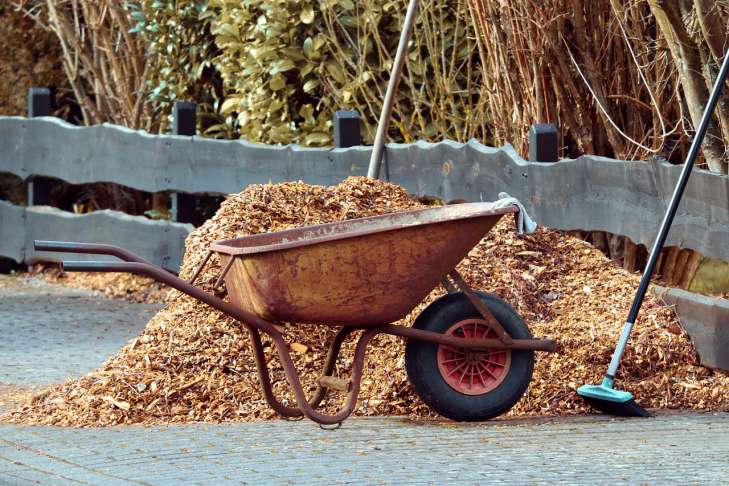Mulching: how, with what and when to mulch beds
The most optimal time for mulching is May-June, when the soil is already well warmed up.
In this article, we will tell you what and how to mulch your garden.
Which mulch is best for the garden
Straw, pine needles, sawdust, and mown grass are best suited for mulching beds.
The paths between the beds can be covered with gravel, granite chips and small pebbles.
It is recommended to mulch flower beds with wood chips, bark and peat.

Tree trunks are covered with large chips, bark or leaves.
Freshly cut grass is not used; it can cause rotting of the root system.
How to mulch to prevent grass from growing
To prevent grass from growing on the paths, it is better not to use organic matter, but to choose mulch that will not decompose and fly away.
Cones are best suited for tree trunk circles, but you can also use bark or small wood chips. Granite chips are also suitable.
How to do mulching correctly
Before mulching, the soil must be dug up, loosened and weeds removed.
Mulching should never be done on wet soil, for example, after rain or watering.
The mulch is never compacted; it should lie in a loose, uniform thickness and even layer.
How often should you change mulch
If inorganic mulching rarely needs updating, then organic mulching should be updated once every 2-3 years.
Since organic material simply warms up over time.
Previously, we told you how to root a cut rose from a bouquet.
